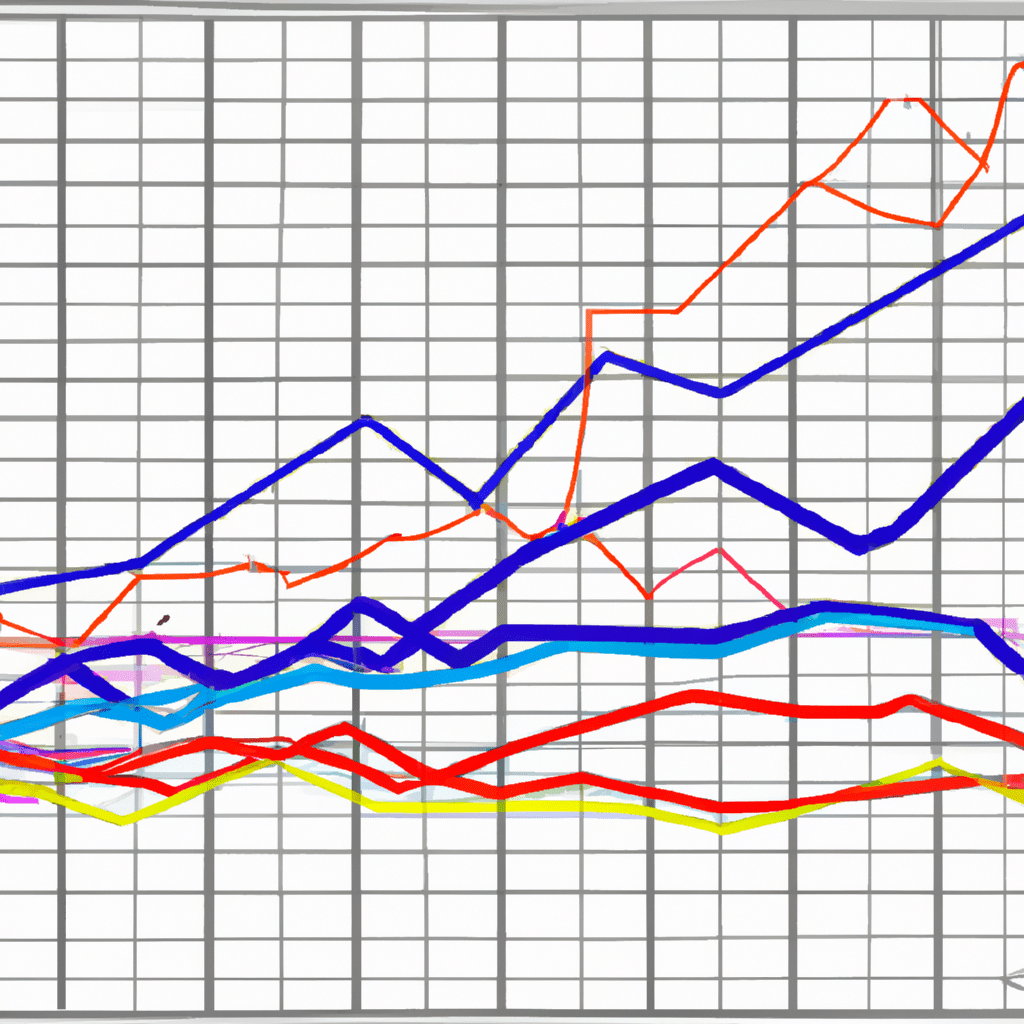In today's globalized economy, the financial market plays a crucial role in determining the direction of businesses and economies. As investors and traders navigate this complex landscape, they rely on various tools and indicators to make informed decisions. One such tool is the financial market index, which provides a snapshot of the overall performance of a specific segment of the market. In this comprehensive guide, we will delve into the world of financial market indexes, exploring their significance, popular stock indexes, and the six sectors indices that demystify trading. Whether you are an experienced investor or just beginning your journey in the financial markets, this article aims to provide you with a deeper understanding of these crucial indicators. So, let's dive in and unravel the intricacies of the financial market index.
1. Understanding Financial Market Index: A Comprehensive Guide to World Stock Indexes

Understanding Financial Market Index: A Comprehensive Guide to World Stock Indexes
Financial Market Index plays a crucial role in understanding the overall performance of stock markets around the world. It serves as a benchmark that reflects the collective performance of a specific group of stocks or the entire market. In this comprehensive guide, we will delve into the concept of Financial Market Index, explore popular stock indexes worldwide, and understand the significance of sector indices in trading.
What is a Financial Market Index?
A Financial Market Index is a statistical measure that represents the performance of a specific group of stocks or the entire market. It provides investors with a snapshot of the overall market movement, allowing them to gauge the direction and volatility of stock prices. These indexes are usually calculated using a weighted average of the component stocks' prices or market capitalization.
World Stock Indexes: A Global Perspective
The world of Financial Market Indexes is vast and diverse, with each country and region having its own set of popular stock indexes. These indexes are designed to represent different segments of the market, such as large-cap stocks, small-cap stocks, or specific industry sectors. Some of the most widely recognized global stock indexes include the Dow Jones Industrial Average (DJIA) in the United States, the FTSE 100 in the United Kingdom, the Nikkei 225 in Japan, and the DAX in Germany.
Popular Stock Indexes
Among the numerous stock indexes worldwide, a few have gained immense popularity due to their broad market coverage and extensive historical data. These popular stock indexes serve as barometers for the overall health and performance of their respective markets. For instance, the S&P 500, consisting of 500 large-cap U.S. companies, is widely regarded as a benchmark for the U.S. stock market. Similarly, the NASDAQ Composite Index focuses on technology stocks, while the Russell 2000 represents small-cap stocks in the U.S. market.
What are the Six Sectors Indices?
In addition to overall market indexes, sector indices are crucial indicators that provide insights into specific industry performances. The six sectors indices are often used to track the performance of distinct sectors in the market. These sectors include technology, consumer discretionary, financials, healthcare, industrials, and utilities. By analyzing these sector indices, investors can gain a deeper understanding of the overall health and potential opportunities within specific industries.
In conclusion, understanding Financial Market Indexes is vital for investors and traders alike. These indexes serve as essential tools for gauging the performance and direction of the stock market. By familiarizing ourselves with popular stock indexes and sector indices, we can make informed investment decisions and navigate the complex world of financial markets with greater confidence.
2. Popular Stock Indexes: Unveiling the Key Players in the Financial Market

In the world of finance, financial market indexes play a crucial role in measuring the performance and overall health of the stock market. These indexes serve as benchmarks, allowing investors and analysts to gauge the direction and trends of the market as a whole. Among the numerous financial market indexes, there are several popular stock indexes that are widely followed and considered key players in the global financial market.
One of the most well-known and influential stock indexes is the S&P 500. Representing the largest 500 publicly traded companies in the United States, this index serves as a reliable indicator of the overall performance of the American stock market. The S&P 500 includes companies from various sectors, such as technology, healthcare, finance, and consumer goods, making it a comprehensive representation of the U.S. economy. Investors and analysts closely monitor the S&P 500 to gain insights into the performance of the American stock market.
Another prominent stock index is the Dow Jones Industrial Average (DJIA), often referred to as the Dow. Comprised of 30 large, well-established companies, the Dow represents a diverse range of industries, including technology, pharmaceuticals, and financial services. Widely regarded as a barometer of the U.S. stock market, the Dow is closely watched by investors and traders worldwide. However, it's important to note that the Dow is a price-weighted index, meaning that companies with higher stock prices have a greater impact on the index's movement.
Moving beyond the United States, there are global stock indexes that provide insights into the performance of international markets. One such index is the FTSE 100, which represents the 100 largest companies listed on the London Stock Exchange. It is considered a crucial indicator of the UK stock market and is widely used by investors and analysts to assess the performance of British companies.
In addition to these widely recognized stock indexes, there are sector-specific indexes that focus on particular industries or sectors. These sector indexes allow investors to track the performance of specific sectors within the stock market. The six sectors commonly referred to as indices in trading are technology, healthcare, finance, consumer goods, energy, and industrial. Each sector index provides a snapshot of the performance of companies within that specific sector, allowing investors to make informed decisions and assess market trends within their chosen industry.
To summarize, financial market indexes, including popular stock indexes, play a critical role in analyzing and understanding the stock market. The S&P 500, Dow Jones Industrial Average, and FTSE 100 are just a few examples of widely followed indexes that provide insights into the performance of the financial market. Additionally, sector-specific indexes allow investors to track the performance of specific industries within the market. By utilizing these indexes, investors and analysts can gain valuable information to guide their investment decisions and navigate the ever-changing world of finance.
3. Demystifying Indices in Trading: Exploring the Six Sectors Indices and Their Significance

Financial Market Index
In the world of trading, financial market indexes play a crucial role in providing investors with a snapshot of the overall market performance. These indexes are used to measure the performance of a specific group of stocks, bonds, or other financial instruments. They act as a benchmark, allowing investors to gauge the performance of their investments in comparison to the broader market.
World stock indexes are widely followed by investors and traders around the globe. They provide a comprehensive view of the global stock markets and are often used as a reference point for decision-making. Popular stock indexes such as the S&P 500, Dow Jones Industrial Average (DJIA), and Nasdaq Composite Index are household names in the financial world. These indexes represent a diverse range of companies from various sectors, giving investors an indication of the overall market sentiment.
But what exactly is an index in trading? In simple terms, an index is a statistical measure of change in a securities market. It is constructed using a specific methodology that considers factors such as market capitalization, stock prices, and trading volume. These measures are combined to create an index that represents the performance of a particular market or sector.
One way to demystify indices in trading is to understand the concept of sector indices. The six sectors indices are forex based on the industry or sector to which the companies in the index belong. These sectors include technology, healthcare, financials, consumer discretionary, industrials, and energy. Each sector index represents a specific group of companies within that sector and provides insights into the performance of those industries.
The significance of sector indices lies in their ability to help investors and traders identify trends and opportunities within specific sectors. By analyzing the performance of a sector index, market participants can gain insights into the overall health of a particular industry. For example, if the technology sector index is performing exceptionally well, it may indicate a bullish sentiment in the technology industry, signaling potential investment opportunities.
Moreover, sector indices allow investors to compare the performance of different sectors and identify potential areas of outperformance or underperformance. This information can be valuable when making investment decisions or rebalancing a portfolio. By diversifying investments across different sectors, investors can reduce risk and potentially maximize returns.
In conclusion, financial market indexes, including the six sectors indices, are essential tools in trading. They provide investors with a benchmark to gauge the performance of their investments and offer insights into specific sectors. Understanding the significance of sector indices can help demystify the complex world of trading and aid in making informed investment decisions.
In conclusion, understanding the concept of financial market indexes is crucial for investors and traders alike. This comprehensive guide has provided insights into world stock indexes, popular stock indexes, and the significance of indices in trading. By delving into the six sectors indices, readers can gain a deeper understanding of how different sectors of the economy impact the financial markets. As the world of finance continues to evolve, staying informed about financial market indexes will be essential for making informed investment decisions. Whether you are an experienced investor or just starting out, having a solid understanding of these key players in the financial market will undoubtedly be beneficial in navigating the complex world of investing.





